More than a year ago, the auto industry rallied around Tesla EV chargers, announcing that the company’s charger plugs would be the new industry standard. That meant that all large automakers would adopt Tesla’s North American Charging Standard connector, also called NACS, so that their EV drivers could use Tesla’s Supercharger network.
That shift would have to wait until newer models were released though. Car companies from Ford to General Motors to Rivian announced that NACS ports would be available on models beginning in 2025. Until then, EV drivers would need an adapter to use Tesla charging stations. Some automakers even said they would provide such adapters to existing car owners free.
But car companies have struggled to meet the demand for adapters—and software snags are preventing other cars from accessing Tesla’s charging network in the first place. Those issues are keeping more than 15,000 NACS charging stalls out of reach for EV drivers across the board.
Which EVs can access Tesla Superchargers?
To get other automakers on Tesla’s Supercharger network, first there had to be a software adjustment—for both the chargers and the non-Tesla vehicles. So far, only two automakers have completed that step to even access Superchargers: Ford and Rivian.
Eventually, all EVs will get the software updates to access Tesla chargers, but some have been delayed. General Motors, Volvo, and Polestar were slated to get access this spring, but they’re still waiting. It’s not clear what’s holding up that access; General Motors has said the software coordination with Tesla is now expected later this year, and The New York Times reported that other automakers are expected to “follow GM.”
Even when the other automakers do get software access, drivers still won’t be able to stop at any Supercharger. Tesla’s Supercharger network was long seen as a benefit exclusive to Tesla drivers, and the company is keeping the majority of chargers for its own community. According to Tesla’s website, the company is setting aside more than 27,000 EV charger stalls just for Tesla drivers, allowing 15,000 stalls for NACS ports, and another 500-plus stalls for “other EVs” (meaning the charging station itself will have an adapter, versus relying on the driver to have an NACS port).
EV charger adapter issues
Once automakers have the software compatibility to work with Tesla Superchargers, EV drivers (who don’t yet have the forthcoming NACS-included car models) need the physical adapter. Ford and Rivian are the only EV makers with the right software, but most of those drivers still don’t have Supercharger access because the automakers haven’t received enough adapters, The New York Times reports. Ford and Rivian are waiting on adapters from Tesla.
Multiple outlets have reported on Ford EV drivers facing charging adapter delays. “The supply is constrained,” Ford spokesman Martin Gunsberg told the Detroit Free Press at the end of June. Jim Farley, president and CEO of Ford, touched on the issue in an interview with Yahoo Finance in early June. “We think giving our customers access to the Supercharger network is a good move, but it’s early days. We still need 90,000 adapters.” After the interviewer said, “You’ll get them, right?” Farley added, “I texted Elon [Musk] last night, we’ll see what he says.”
A Ford spokesperson said in a statement that the company is “working rapidly” with its supply base “to increase high-quality production,” and there was confidence that a solution would be found in the coming weeks. “As adapter supply increases, our goal is to work as fast as possible to deliver adapters to our customers,” the spokesperson said.
Many posts on Rivian forums reveal that drivers have experienced delays getting their adapters due to supply chain issues. A Rivian spokesperson said in a statement that the company has faced a “challenging supply chain position” and is now “ramping up adapter supply as quickly as possible.” The company added that it’s “working closely with Tesla to support the industry’s overall transition to NACS.”
Tesla CEO Elon Musk laid off Tesla’s entire Supercharger team in May. Though he announced the company would still invest $500 million in its Supercharger network, the move raised concern about how plans to expand EV charging—and especially EV charging access—would be affected. (Tesla has since rehired some Supercharger employees.)
Ford and Rivian could get third-party adapters from other suppliers, “but it may not be easy to find firms with the manufacturing capacity and expertise,” The New York Times reported. “Adapters from other firms would have to go through an extensive testing and approval process.” Tesla didn’t respond to a request for comment, but the company said in an X post on August 23 that its Gigafactory New York, located in Buffalo, was “ramping up” production of NACS adapters to 8,000 units per week.


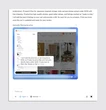

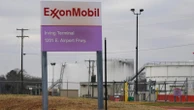
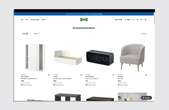

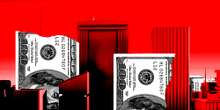
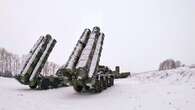
No comments